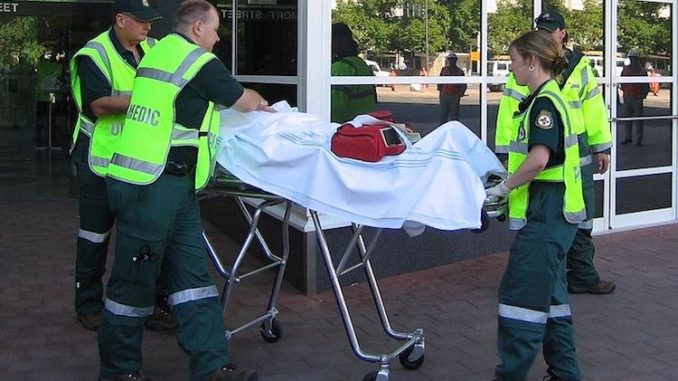
Recent media reports point to a surge in reported incidents of aggression against staff in New Zealand hospitals. Body Worn Cameras are part of a recipe for de-escalating incidents and preventing violence.
According to a 7 September New Zealand Herald report, security officers at Waitemata District Health Board hospitals are being issued camera vests after a surge in reported violence. Incidents included a nurse being strangled and staff being punched in the face, with one requiring surgery after an assault.
In response to an Official Information Act request, the DHB noted that in the 24 months to July 2018 there were 378 reported incidents of verbal aggression and 374 reported incidents of physical aggression against staff at its sites. Over the same period, the DHB accommodated 257,800 inpatient stays and 489,500 outpatient visits.
“Ultimately, our employees deal with a broad cross-section of the community in their day-to-day work and this often involves reaching out to people when they are at their most vulnerable and anxious, including those with mental health conditions, which can result in unpredictable behaviours,” stated Fiona McCarthy, director of human resources, in the DHB’s response.
The DHB has taken the step of rolling out body armour vests and body cameras to certain staff in frontline roles. The measure complements other security arrangements, including CCTV cameras, security alert systems for hospital staff and community workers, and rostering a security officer in the Emergency Department.
In August, news media reported that assaults against emergency department staff at Middlemore Hospital had also increased, resulting in the deployment of personal alarms to nurses. The number of calls made by staff to security had increased from 31 in December 2016, to 65 over the same period in 2017.
The hospital, part of Counties Manukau DHB, introduced other measures, including staff training in de-escalation techniques, and a police-designed app allowing police to warn the department if potentially aggressive patients with suspected mental health issues were being brought in, including information about patients and their expected arrival time at hospital.
Enjoying this article? Consider a subscription to the print edition of New Zealand Security Magazine.
According to an article published on 08 June in the New Zealand Medical Journal, staff working in emergency departments are exposed to a constant level of violence and aggression. “This includes verbal threats and harassment that have become seen as a normal part of the work environment, and in many cases there is a failure to report the full extent of aggression that occurs.”
The article – titled “Violence and aggression in the emergency department is under-reported and under-appreciated” – reported the findings of a one-month intensive, audit of the Christchurch Hospital emergency department’s violence and aggression reporting, which compared actual incidence of aggression with previously reported data.
During the month-long study, 7,896 patients were seen, and 107 cases of violence or aggression (19 of them physical) noted. Most attacks (92 percent) were on females, and most incidents occurred on Saturdays, with the most common time between 1am and 4am.
Previous security reports indicated just 20 to 40 incidents a month – a big disparity. “When reporting is not provided,” state the report’s authors, “there is the potential for management and DHBs to misinterpret the level of violence in the workplace and be unaware of the need to respond appropriately.”
Body armour
CERT Systems, a major distributor of body armour, body-worn camera, duty equipment and clothing to security, compliance and enforcement officers in over 40 organisations in New Zealand, is a supplier of body armour to the Waitemata DHB.
Manufactured by PPS Group, Tabard Style Stab Resistant Vests made by PPS Group are designed to look ‘non-confrontational’, and are made specifically for:
- People dealing with high risk individuals, such as potentially violent or aggressive members of the public, drug users or dealers, or operating in geographical areas known for criminal activities, drugs, alcohol misuse and disturbances
- Lone workers frequently faced with frustrated and disappointed customers
- Officers conducting home or office visits to enforce laws and regulations
- Individuals or teams that secure and protect property, events and people
The tabard style stab resistant vests are worn on top of clothing and effectively help protect the wearer by shielding the spine, ribs and all vital organs against attacks from edged weapons and hypodermic needles. They can be put on or taken off within a very few seconds.
The vests also offer protection from blunt force trauma. According to PPS, “an impact-based assault in most countries is more likely and frequent than an attack involving an edged weapon or firearm. Nevertheless, blunt force trauma (usually suffered following a kick, punch or blow from a blunt object) injuries can lead to organ failure, irreparable injuries and long-term disability.”
The lightweight vests feature outer covers made out of a water-resistant, high performance, breathable coated polyester, with additional radio loops, docks for body worn video solutions and Velcro identification badges available upon request.
For more information about the PPS range, visit www.cert.co.nz


